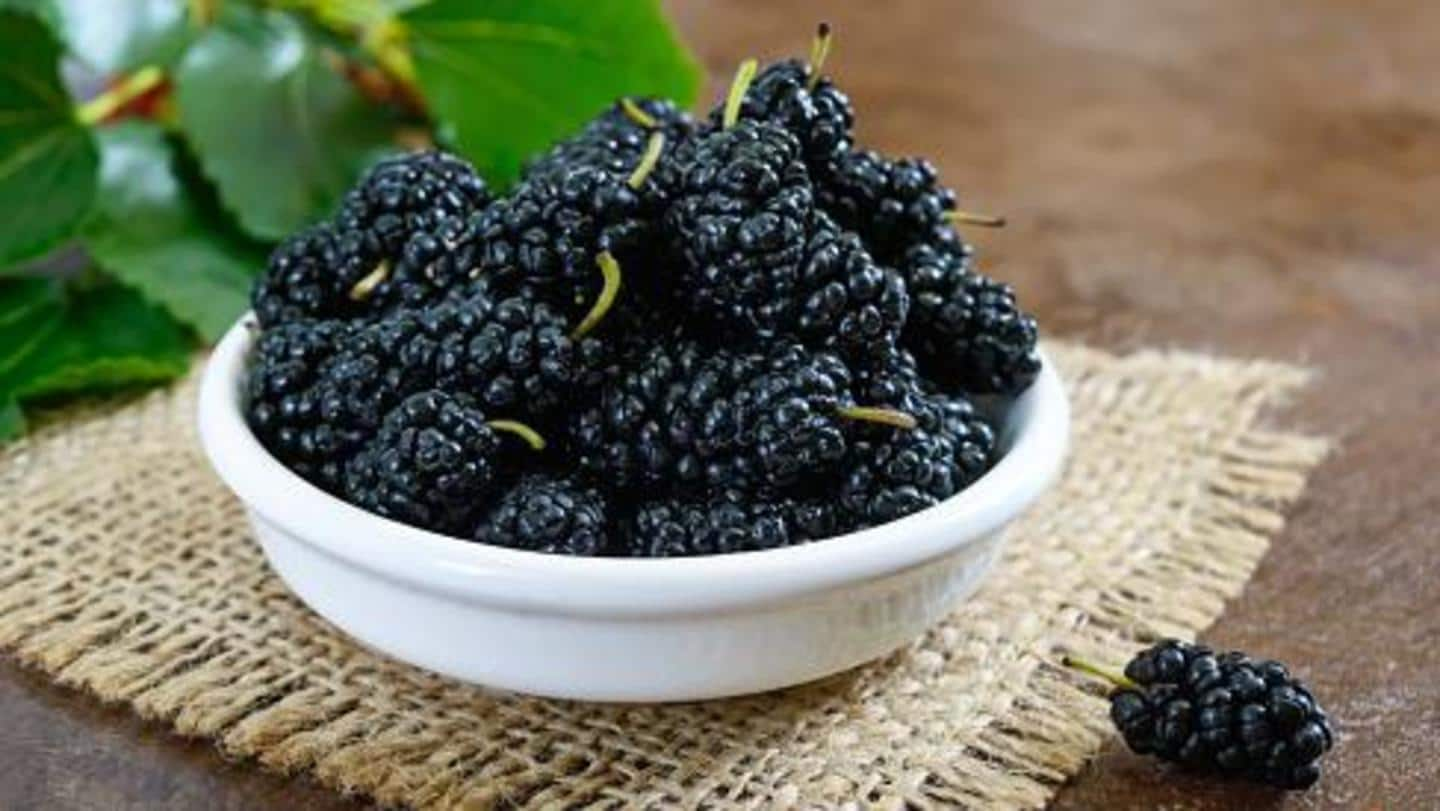
#HealthBytes: Reasons why you should eat more of mulberries
What's the story
Mulberries are colorful berries that have a unique, tart taste and are usually made into wine, fruit juice, jam, syrups, etc.
The fruits are generally pink, purple, or red in color and can be eaten raw as well.
In India, mulberries are available during March-May and October-November seasons, and this article covers their nutritional, health benefits, and reasons why you should eat them.
Eye sight
Has high content of vitamin A, juice great for eyes
Mulberry has a high content of vitamin A, which is essential for strengthening your eyes and improving vision.
It is also known to protect your eyes from the harmful effects of free radicals that lead to loss of vision and retina degeneration.
If you're looking to improve your eye health, having a glass of mulberry juice every day is a step toward it.
Cholesterol levels
Reduces excess fat and lowers cholesterol
Cholesterol is a fatty molecule that is present in every cell of the body. But an increase in blood cholesterol levels leads to severe health complications such as obesity, heart diseases, etc.
Studies suggest that mulberries are effective in reducing excess fat and lowering cholesterol levels.
A few laboratory experiments have also linked mulberry to reduce fat formation in the liver.
Diabetes
Contains 1-deoxynojirimycin that helps in maintaining blood sugar levels
Blood sugar spikes occur when the body is unable to effectively use insulin.
Individuals with type-2 diabetes are at an increased risk of excessive blood sugar spikes, especially after eating carbohydrates.
The 1-deoxynojirimycin compound in mulberry is known to inhibit the action of an enzyme that breaks down carbohydrates.
Thus, a healthy serving of mulberries helps in preventing elevated blood sugar levels after meals.
Cancer
In China, mulberries are an age-old remedy against cancer
The oxidation of free radicals present in the body can lead to several life-threatening health conditions, one of them being cancer.
In China, mulberries have been in use for centuries as a remedy for cancer.
Recently, scientists have also begun to back the cancer-preventive effects of the fruit, attributing the antioxidants present in it for decreasing the oxidative stress in the body.